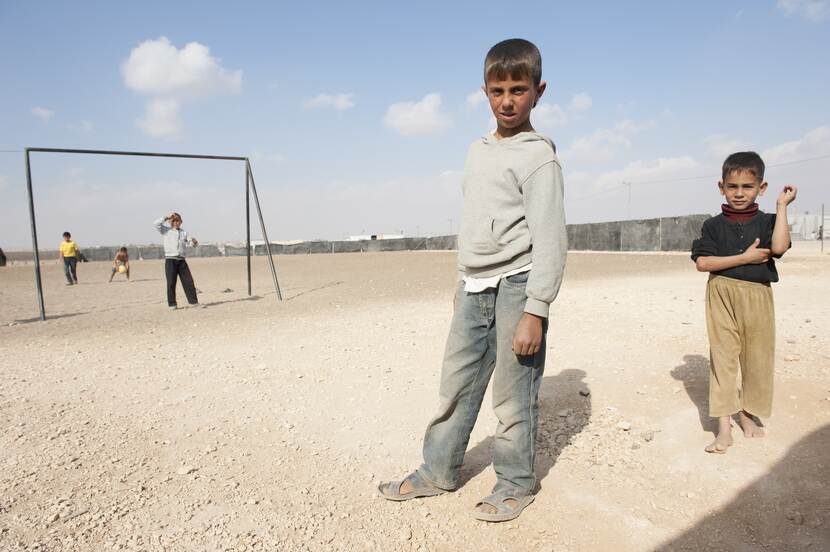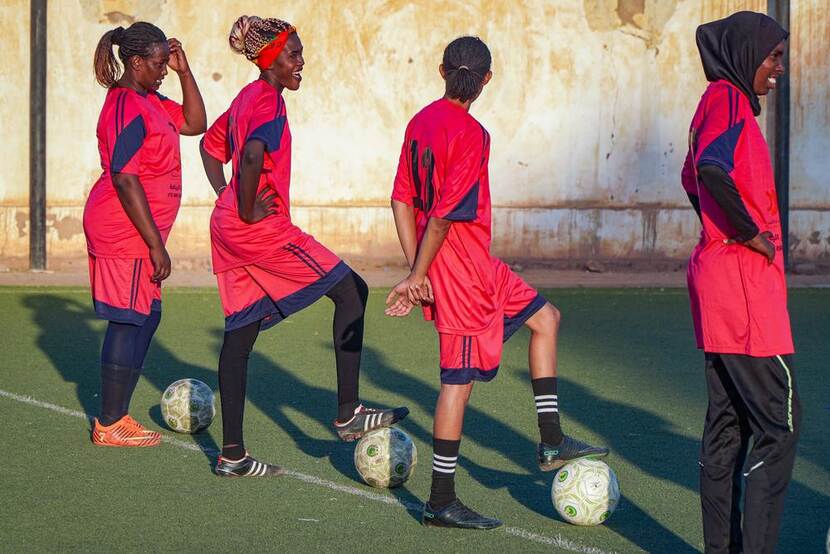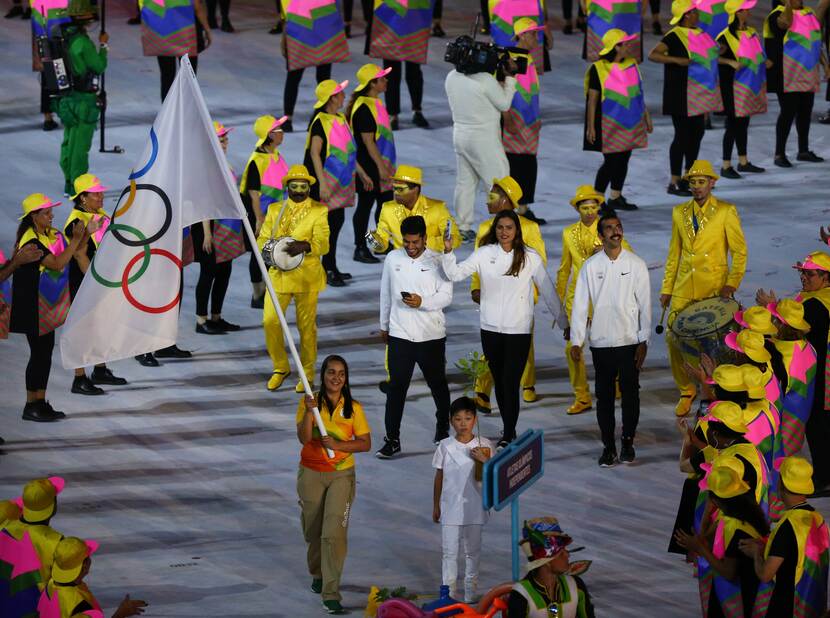Sport is important for people’s mental health, especially in crisis situations
People in a crisis situation run a higher risk of developing mental health problems, for instance an anxiety disorder or depression, while at the same time they have poorer access to trusted contacts and care because of the crisis. Sports can help. Jan Roelfs, sports commentator for Dutch public broadcaster NOS, tells us about his experiences at Zataari refugee camp in Jordan. ‘The impact of sports is simply huge.’
In the north of Jordan, near the border with Syria, lies Zataari refugee camp. It’s been seven years since Jan was there. ‘My ex-girlfriend worked in Amman, Jordan,’ he tells us. ‘I went there looking for an interesting project, and proposed it to the Nieuwsuur programme. We filmed there in the run-up to the football World Cup in Brazil. I remember it very clearly. I’m someone who tends to look beyond just sports, given my background in political science.’
Jan says he has always looked for that kind of project throughout his career. In Brazil, for instance, he did a lot of work in the favelas, and experienced at first hand the effect sports can have. ‘I saw that gangs would declare a ceasefire when the Seleção, Brazil’s national football team, was playing. It’s considered unacceptable to attack each other during the match. The impact of sports is huge.’
Unifying factor
The organisations working at Zataari soon found that sports, football in particular, was the most accessible activity. The impact is the greatest in children, but adult trainers were also being trained. There was a football league in the camp. Initiatives like this connect, unite and lead to mutual understanding. ‘If you ask me, as a sports journalist and as a political scientist, sport is the single most unifying factor in refugee camps anywhere in the world. Sport provides a starting point from which it is easier to talk about conflicts.’
Jan believes sport should come first and foremost in refugee settings, both for youngsters and for the adults who organise it. ‘And don’t forget the girls – they want to do sports too.’ As a reporter, Jan would like to do more stories about this – to make it even clearer how sport can reach everyone. ‘It’s important that people in these situations can also enjoy themselves and have fun. It’s a way of helping them at a difficult time in their lives.’
Mental impact
A wide range of sports were available at the refugee camp, including judo and football. Jan believes that sports activities are just as important as education, and that sports can in fact be a stepping stone to education. ‘It actually makes teaching easier, because people in refugee camps have a short attention span.
The impact of sports is simply huge.’ Jan took the initiative to organise a football World Cup at Zataari, in the run-up to the real tournament next year. Various countries would be represented by teams in the refugee camp. In the end, though, it couldn’t take place.
When the COVID-19 pandemic began, and everything that came with it, many people in the Netherlands experienced how quickly their lives could be turned upside down and they could lose all their certainties. And that has a negative effect on your mental well-being.
At Zataari, there was a sense of aimlessness among young people, as it was difficult to get education off the ground. You could see the impact of mobile phones. People were using their mobile phones constantly to stay in contact with family members who hadn’t reached safety yet. ‘There, the mobile phone is a connection to bad news and war. It makes it all the more important that young people can put their phones away for a while to do sports.’
Distraction, having a kickabout, interaction with others, it all helps when you’re feeling down. It’s not an answer to real medical conditions, but it can help prevent them developing.
The Olympic Games
NOC*NSF is supporting three refugees who are part of the IOC Refugee Olympic Team. The team is taking part in 12 Olympic sports in Tokyo, conveying a message of solidarity and hope. They also want to highlight the worldwide refugee crisis and remind us that everyone deserves the chance to succeed in life. To achieve that there needs to be a focus not only on people’s physical well-being, but also on their mental health.
The refugee team will be competing under the Olympic flag in Tokyo. At the opening ceremony on 23 July, the athletes will be the second team to march into the stadium, after the Greek team. Jan thinks this is a good development. ‘It shows they’re really part of this event.’
Around the world, more than 80 million people have fled their homes. And there is an incredible amount of potential sporting talent among them, according to Jan. Refugees camps are not usually set up for just a short period. ‘That is why it’s important to set up permanent sports facilities at the camps, so that people can develop their talents there. In the long term you could create an Olympic programme within refugee camps,’ Jan enthuses. ‘I think that would be wonderful. That’s what we should be working towards.’
Jan also believes that sports and international developments can’t be seen in isolation. ‘It’s such a unifying factor and the impact is huge. Let’s be honest, the main focus is on football. It’s the most accessible sport there is. But in this case there’s a focus on the Olympics too: the whole world is watching.’


